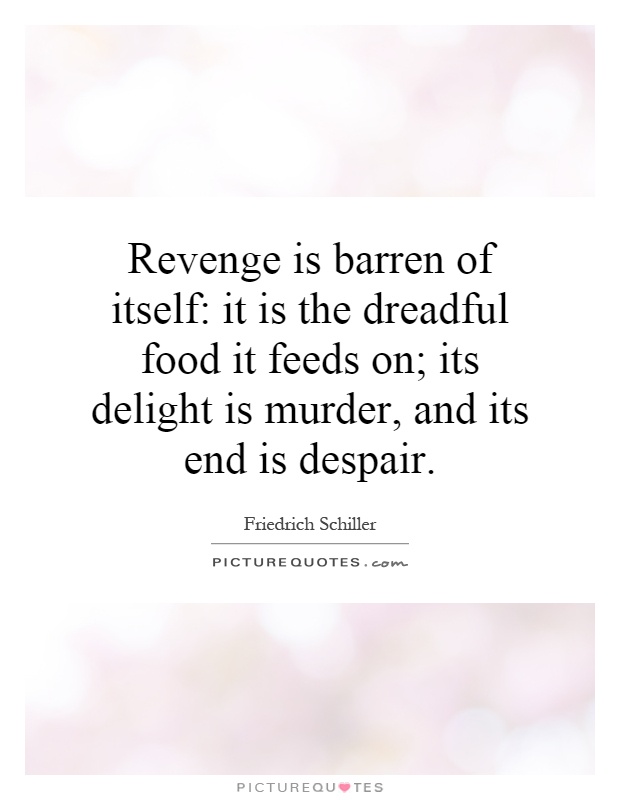Revenge is barren of itself: it is the dreadful food it feeds on; its delight is murder, and its end is despair

Revenge is barren of itself: it is the dreadful food it feeds on; its delight is murder, and its end is despair
Friedrich Schiller, a German poet, philosopher, and playwright, was known for his deep insights into human nature and the complexities of human emotions. One of his most famous quotes, "Revenge is barren of itself: it is the dreadful food it feeds on; its delight is murder, and its end is despair," perfectly encapsulates the destructive nature of revenge.In many of Schiller's works, revenge is a central theme that drives the actions of his characters. Whether it is in his plays like "The Robbers" or "Don Carlos," or in his philosophical writings, Schiller explores the consequences of seeking revenge and the toll it takes on the individual seeking it.
Schiller understood that revenge is a vicious cycle that only leads to more pain and suffering. The desire for revenge consumes the person seeking it, turning them into a slave to their own anger and hatred. The act of seeking revenge becomes an obsession, a never-ending cycle of violence and destruction that ultimately leads to despair.
In "The Robbers," one of Schiller's most famous plays, the character of Franz embodies the destructive nature of revenge. Consumed by his desire for vengeance against his father and brother, Franz becomes a ruthless and cruel figure, willing to do anything to achieve his goal. However, in the end, his quest for revenge only leads to his own downfall and despair.
Schiller's quote also highlights the emptiness of revenge. While seeking revenge may provide a temporary sense of satisfaction, it ultimately leaves the individual feeling hollow and empty. The joy that comes from inflicting harm on others is short-lived and is quickly replaced by a sense of guilt and remorse.












 Friendship Quotes
Friendship Quotes Love Quotes
Love Quotes Life Quotes
Life Quotes Funny Quotes
Funny Quotes Motivational Quotes
Motivational Quotes Inspirational Quotes
Inspirational Quotes